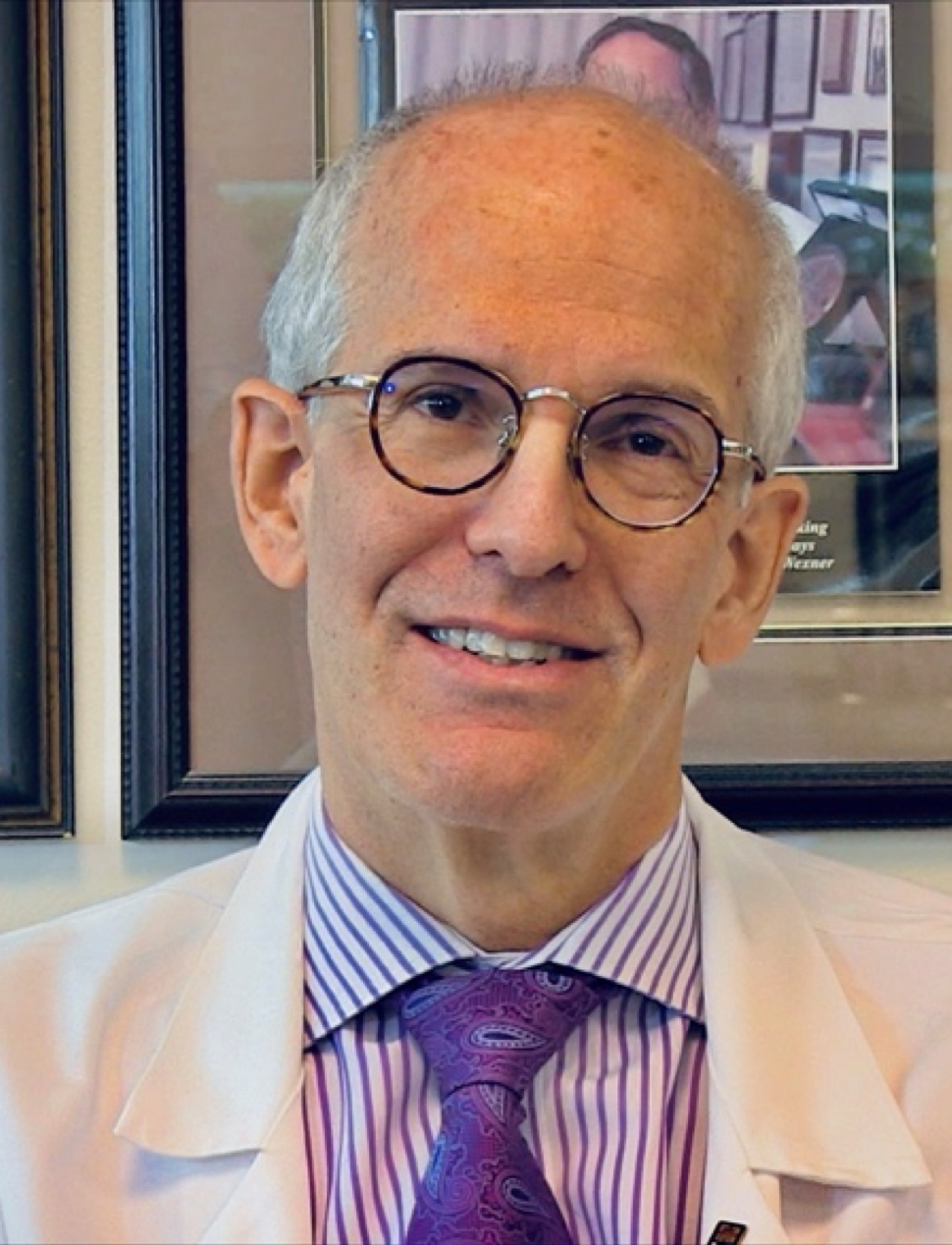Steven D. Wexner1, Jin Ye Yeo2
1Department of Colorectal Surgery, Digestive Disease Institute, Cleveland Clinic Florida, Weston, FL, USA; 2ALES Editorial Office, AME Publishing Company
Correspondence to: Jin Ye Yeo. ALES Editorial Office, AME Publishing Company. Email: ales@amegroups.com
This interview can be cited as: Wexner SD, Yeo JY. Meeting the Editorial Board Member of ALES: Dr. Steven D. Wexner. Ann Laparosc Endosc Surg. 2024. Available from: https://ales.amegroups.org/post/view/meeting-the-editorial-board-member-of-ales-dr-steven-d-wexner
Expert introduction
Dr. Steven D. Wexner (Figure 1) is the director of the Ellen Leifer Shulman and Steven Shulman Digestive Disease Center and has been on staff at Cleveland Clinic Florida since 1988. He was the chair of the department of colorectal surgery from 1993-2024 and is now the Emeritus Chair.
Dr. Wexner is the past president of the American Society of Colon and Rectal Surgeons Research Foundation (2014-2016), past president of the American Society of Colon and Rectal Surgeons (2011-2012), past president of the American Board of Colon and Rectal Surgery (2010-2011), and the past president of the Society of American Gastrointestinal and Endoscopic Surgeons (2006-2007).
In 2020, Dr. Wexner became an Editor-in-Chief of the journal Surgery. Dr. Wexner has published 1022 manuscripts, 271 textbook chapters, and 185 editorials and/or invited commentaries. He has been the editor or co-editor of 44 textbooks or freestanding volumes to date. He is an active member of 43 learned societies and has held more than 70 appointed or elected offices in these societies. In September 2024, Dr. Wexner was listed by Stanford and Elsevier amongst the top 2% of the most cited scientists in 198 scientific fields and subfields. He ranked 34th among surgeons in all specialties and 11th amongst all GI surgeons with an H index of 97; he is the most cited living colorectal surgeon (LINK).

Figure 1 Dr. Steven D. Wexner
Interview
ALES: What inspired you to pursue a career in colon and rectal surgery?
Dr. Wexner: I was inspired to pursue a career in colorectal surgery by a variety of mentors at the Roosevelt Hospital where I was a general surgery resident. Specifically, Drs. Thomas Dailey and Rick Brabbe ignited the passion of the specialty. This inspiration was a mix of being able to care for patients of all ages with both large and small procedures on an inpatient and outpatient basis. I found the spectrum of diseases, the age ranges of the patients, and the types of procedures to be tremendously fulfilling.
ALES: What do you see as the most exciting recent advancements in laparoscopy for colon and rectal cancer, and what promise do these innovations bring for patient care?
Dr. Wexner: I think that some of the most exciting recent advancements center around improving outcomes. Within these categories include minimally invasive surgery, initially laparoscopy and subsequently robotic surgery. The fusion of endoscopy with minimally invasive surgery led to transanal endoscopic surgery and subsequently transanal total mesorectal excision. Surgical staplers allowed lower anastomoses and improvements in surgical technique have allowed preservation of more anal sphincters for patients with mucosal ulcerative colitis. The multidisciplinary team approach including total neoadjuvant therapy has helped contribute to the preservation of more rectums through wait and watch as well as more reconstructions and fewer abdominoperineal resections. Other improvements such as fluorescence imaging and fluorescence-guided surgery have helped us improve patient safety as have enhanced recovery after surgery protocols and surgical site infection prevention techniques.
ALES: In your experience, what are the biggest barriers/challenges to the broader adoption of minimally invasive techniques for colon and rectal surgery, and how can these be overcome to further improve patient outcomes?
Dr. Wexner: The broadest barriers tend to be financial which relate to insufficient access to minimally invasive surgical tools around the world. These problems need to be overcome at a national, regional, and local level.
ALES: You have delivered more than 2000 scientific lectures and held numerous professorships. How do you approach teaching and mentorship in your role as a surgeon? What key principles guide your approach to mentoring the next generation of surgeons?
Dr. Wexner: My key principles to mentoring are to try to connect the mentee with an area of their interest and passion and then try to have them collaborate with others in these areas. I try to actively promote every one of my mentees. I take tremendous pride in watching them succeed throughout their careers.
ALES: As an active and past member of numerous learned societies, how do you maintain a balance and ensure that your administrative and academic work enhances, rather than detracts from, your clinical practice?
Dr. Wexner: My balance is that academic practice synergizes with clinical practice. In addition, the society involvement and academic work allow me to further the promotion of my mentees by “volunteering” them for assignments as committee members, trial investigators, chapter authors, peer reviewers, speakers at scientific forums, and co-authors.
ALES: What do you consider to be your most significant contribution to the field of colon and rectal surgery? Moving forward, what legacy do you hope to leave in the field of colorectal surgery?
Dr. Wexner: My most significant contribution to the field of colorectal surgery is the cadre of alumni/mentees who continue to make the world much better. I also think that my alumni and mentees are my greatest legacy. My other contributions are innovations including the double-stapled ileal J-pouch with pouch-anal anastomosis, the promotion of the colonic J-pouch, the introduction of laparoscopic colorectal surgery, the creation of the Wexner incontinence score and the Wexner constipation score, and introducing technical variations in anal sphincter repair and graciloplasty.
ALES: How has your experience been as a longstanding Editorial Board Member of ALES?
Dr. Wexner: My experience as a longstanding editorial board member of ALES has been very satisfactory. I am impressed by the quality and scope of the articles submitted.
ALES: As an Editorial Board Member, what are your expectations for ALES?
Dr. Wexner: My expectation for ALES is to continue to attract more high-quality manuscripts from around the world.
